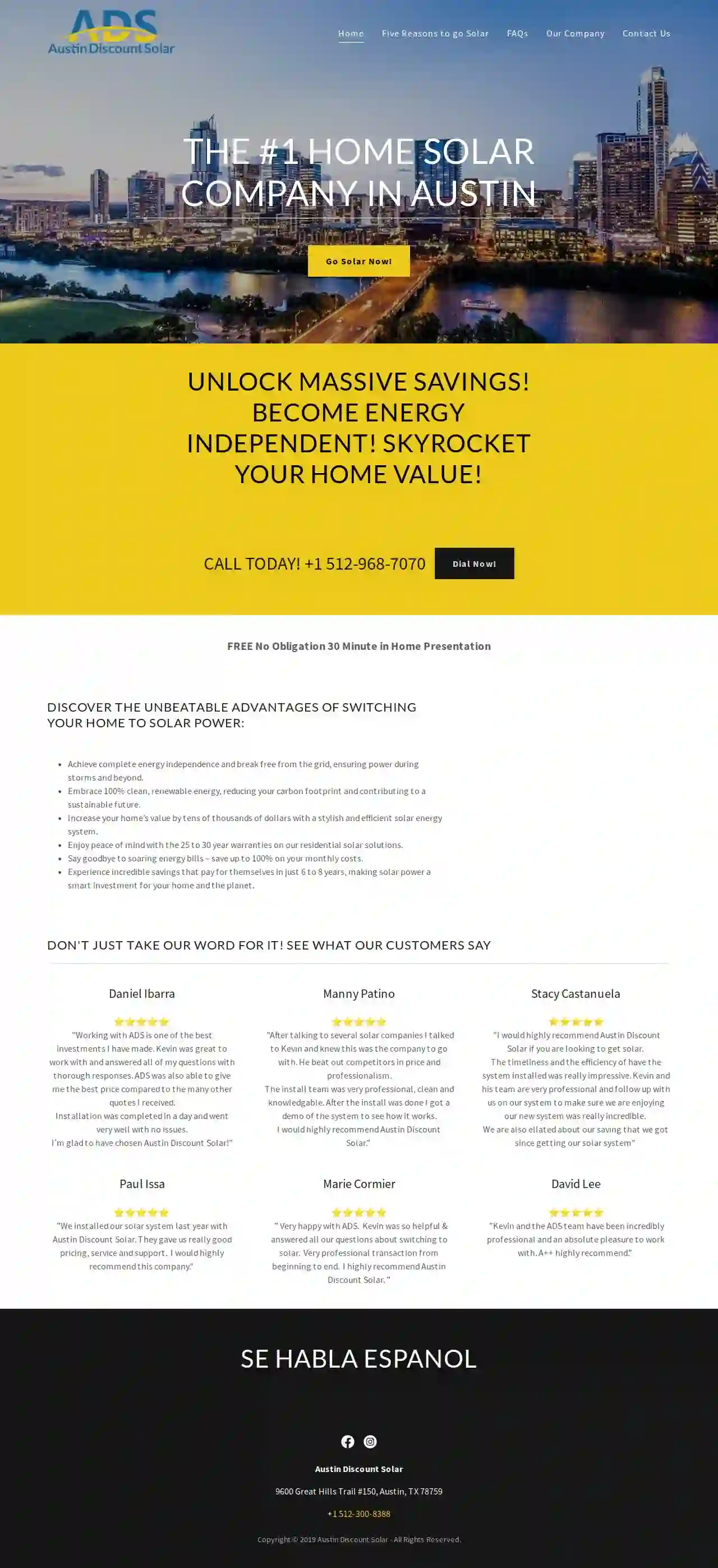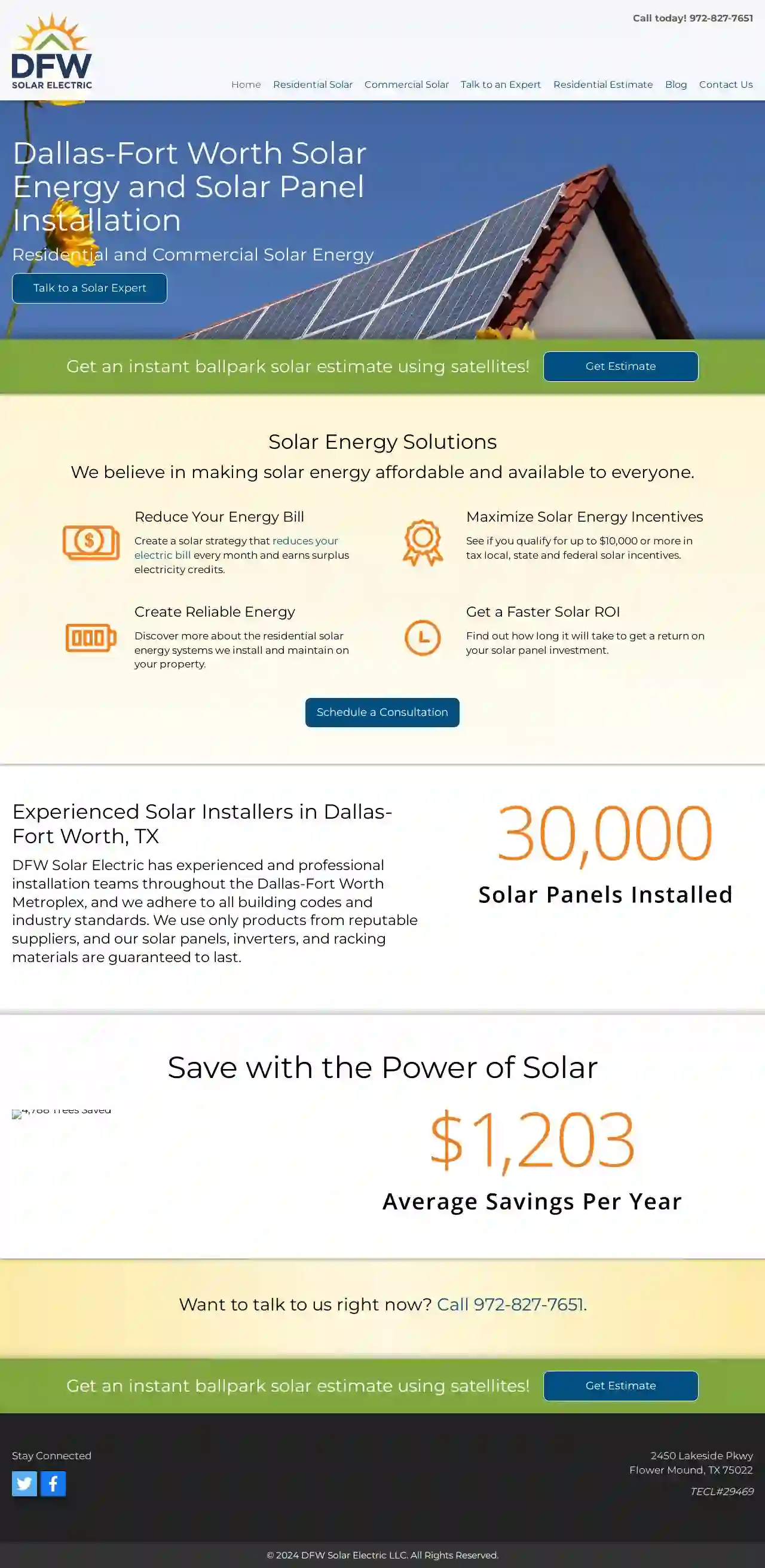Solar Installers Vidor
Find Solar Panel Installers in Vidor
Get 3 FREE Solar Installer quotes for your project today! Compare profiles, reviews, accreditations, portfolio, etc... and choose the best deal.

Liberty Solar USA
56 reviewsLiberty Solar USA, Austin, San Antonio, TX, USLiberty Solar USA is a Texas-based solar installation company specializing in residential and backup power installations. They offer tailored quotes for maximum accuracy and utilize AI design technology for efficient solar panel installations. Their products range from high-end solar technology to everyday solar power needs.
- Services
- Why Us?
- Gallery
Get Quote
American Sentry Solar - San Antonio
4.222 reviews221 Gateway Drive, Bel Air, MD, 21014, USAmerican Sentry Solar is a leading provider of solar energy solutions in Maryland, Delaware, and Pennsylvania. Our mission is to make solar simple by offering exceptional service, an incredibly easy process, and top-quality solar panels. We believe in the power of solar energy to transform homes and communities, and we're dedicated to helping our customers achieve energy independence.
- Services
- Why Us?
- Accreditations
- Our Team
- Testimonials
- Gallery
Get Quote
Sunergy
515 reviewsLaguna Hills, CA, USA, 23182 Alcalde Dr. Suite G, 92653, USSunergy is a solar company dedicated to providing clean, reliable energy solutions through cutting-edge designs and expert energy management services. With a robust 15-year warranty on solar batteries and a comprehensive 25-year warranty on solar systems, Sunergy ensures long-term investment and peace of mind for clients. With decades of solar experience and expertise in residential, commercial, utility farms, municipalities, and government projects, Sunergy is a trusted choice for those seeking solar energy solutions.
- Services
- Why Us?
- Accreditations
- Our Team
- Testimonials
- Gallery
Get Quote
Hub City Solar
5105 reviewsHub City Solar, Lubbock, TX, 123 Solar Lane, 79401, USHub City Solar is a locally owned and operated solar installation company based in Lubbock, Texas. They offer solar solutions for both residential and commercial properties, aiming to provide cheaper and more predictable energy compared to traditional utility rates. Their services include solar panel installations, solar leases, and monitoring of solar panels. They have a team of experts who are licensed, bonded, insured, and certified in industry-leading solar equipment. Hub City Solar serves areas within 200 miles around Lubbock, including Amarillo, Midland, Odessa, Abilene, San Angelo, and Clovis, New Mexico.
- Services
- Why Us?
- Accreditations
- Our Team
- Testimonials
- Gallery
Get Quote
Solar Panel Austin
51 reviewsAustin, TX, USA, 123 Solar Street, 78701, USSolar Panel Austin is a professional solar panel installation service in Austin, TX. They provide reliable solar panel systems that require little to no maintenance. Their services include solar panel installation, solar inverter installation, solar panel maintenance, and system monitoring. They offer a warranty for their solar panels and have inverters that can output AC power at voltages above regular mains power. They also provide solar panels for homes and commercial properties, offering an effective and energy-efficient option.
- Services
- Why Us?
- Accreditations
- Our Team
- Testimonials
- Gallery
Get Quote
East Texas Solar
54 reviews123 Solar Lane, Suite 100, Dallas, 75001, USEast Texas Solar is a solar energy installation company dedicated to sustainable energy. They offer various solar power systems including grid-tied, grid-tied with battery backup, and off-grid systems. Their mission is to help East Texans find a solar energy solution for their homes, providing cost savings, increased home value, and renewable energy.
- Services
- Why Us?
- Accreditations
- Our Team
- Testimonials
- Gallery
Get Quote
West Texas Solar
4.933 reviews40474 E. Overland Trail, Abilene, 79601, USWest Texas Solar is a local business that specializes in providing custom solar energy systems and solar panels in Abilene, Texas. They cater to residential homes, commercial businesses, and off-grid locations. Their team of professional engineers can design the ideal solar panel system to meet specific requirements efficiently. They take great pride in their craftsmanship and have unmatched, high-quality customer service.
- Services
- Why Us?
- Accreditations
- Our Team
- Testimonials
- Gallery
Get Quote
SAT Energy
4.25 reviewsSan Antonio, Texas, USA, 2418 Jackson Keller Rd, 78230, USSAT ENERGY is a leading provider of solar mobility hubs and solar LED lighting solutions. They specialize in designing, manufacturing, and installing energy-efficient lighting systems for various applications including streets, parks, commercial lots, farms, and more. SAT ENERGY works with property management companies, homeowner associations, school systems, municipalities, individual homeowners, and businesses to provide customized lighting solutions that meet their specific needs. Their products include a range of solar lighting series, benches, and hubs designed to be off-grid and self-sufficient, offering an economical and reliable option for outdoor lighting.
- Services
- Why Us?
- Accreditations
- Our Team
- Testimonials
- Gallery
Get Quote
Austin Discount Solar
523 reviews9600 Great Hills Trail #150, Austin, TX 78759, 78759, USAustin Discount Solar is the #1 home solar company in Austin, offering complete energy independence, 100% clean renewable energy, increased home value, 25 to 30 year warranties, and incredible savings that pay for themselves in just 6 to 8 years.
- Services
- Why Us?
- Accreditations
- Our Team
- Testimonials
- Gallery
Get Quote
DFW Solar Electric
4.914 reviewsFlower Mound, TX, 2450 Lakeside Pkwy, 75022, USDFW Solar Electric is a leading provider of solar energy solutions in the Dallas-Fort Worth area. They offer residential and commercial solar panel installations, aiming to make solar energy affordable and accessible to everyone. Their services include reducing energy bills, maximizing solar energy incentives, creating reliable energy, and providing a faster return on investment for solar panel installations.
- Services
- Why Us?
- Accreditations
- Our Team
- Testimonials
- Gallery
Get Quote
Over 4,210+ Solar Contractors in our network
Our solar contractors operate in Vidor & beyond!
SolarCompaniesHub has curated and vetted the Best Solar Contractors arround Vidor. Find the most trustworthy business today.
Frequently Asked Questions About Solar Installers
- Your current energy usage
- The size of your solar system
- Your local electricity rates
- The amount of sunlight your panels receive
- Available net metering policies
What happens to my solar panels during a power outage?
What happens if my roof needs to be replaced after I install solar panels?
How much can I save on my electricity bill with solar panels?
Do solar panels increase my home value?
What happens to my solar panels during a power outage?
What happens if my roof needs to be replaced after I install solar panels?
How much can I save on my electricity bill with solar panels?
- Your current energy usage
- The size of your solar system
- Your local electricity rates
- The amount of sunlight your panels receive
- Available net metering policies